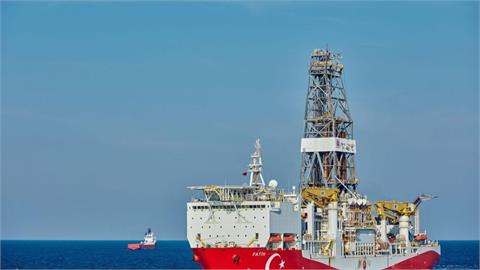"Business interests, particularly of that magnitude, are usually not affected by such issues. Of course, any kind of deterioration between the two states may have an impact but cannot put in danger the exploitation of Zohr gas field,” Constantinos Filis, director of research at Institute of International Relations, told New Europe on April 13 in the context on the EXPOSEC DEFENSEWORLD 2016 conference in Athens, focusing on security in southeastern Europe.
The main risk in the case of Egypt and its potential role as a supplier of the European market rests on its internal developments and the possibility of destabilisation, especially given that Libya is becoming the new "operation theatre” for the so-called Islamic State (ISIS) or Daesh and possibly NATO and other external powers, Filis said.
He said that other issues include the pace at which Zohr is going to be developed, the needs of the growing Egyptian market, given that up until recently energy prices were subsidised which made it less attractive for companies to supply the internal market, as well as the competitiveness of the Egyptian gas with regard to pricing. Moreover, Iran’s comeback in the market, although in contrast to oil in the case of natters, it will take Tehran some time to get its "share”, may affect Egypt’s role as a potential supplier to Europe, Filis said.
"Also, whether and to what extent will Egypt join forces with Cyprus and Israel will define to an extent future developments. Supplying the European market will also depend on the latter’s supply-demand gap in the next two decades,” he said.
Meanwhile, around 15 energy companies are believed to want to be part of a planned consortium, which will carry Israeli gas to Europe via Turkey, Hurriyet quoted Turcas CEO Batu Aksoy as saying. Filis told New Europe that using the Turkish soil for reaching the European market is an expensive option, as a new pipeline system within Turkey needs to be constructed. "From a political point of view, again Turkey cannot be regarded as a safe corridor for European interests, not least for the fact that its wider agenda usually collides with the European and the way [Turkish President Recep Tayyip] Erdogan deals with Ankara’s challenges is distancing his country from the West, making it a less reliable partner,” he said.
"But Turkey may well become a ‘client’ for Israeli natural gas, provided that there will be a solution to the Cyprus issue,” Filis added. Given the worsening relations between Ankara and Moscow that led to the suspension of the Turkish Stream pipeline, Turkey can receive quantities from Israel and Cyprus, seeking to secure 16 billion cubic metres, he said that any decisions cannot but take into account both economic, technical as well as geopolitical considerations.
https://neurope.eu/article/murder-cant-kill-italys-interest-egyptian-gas/


